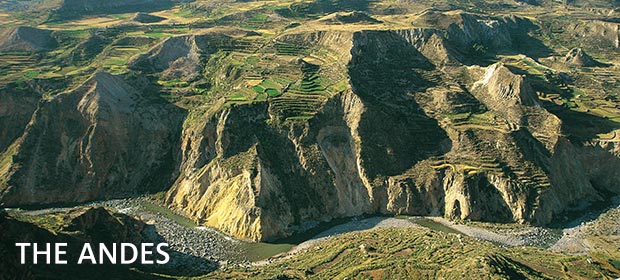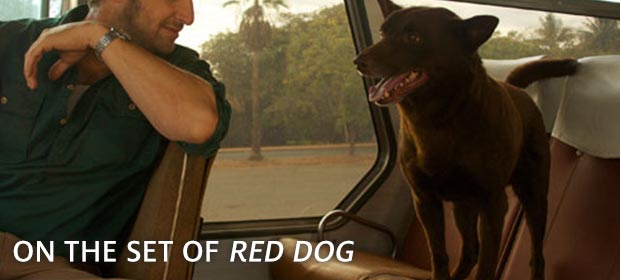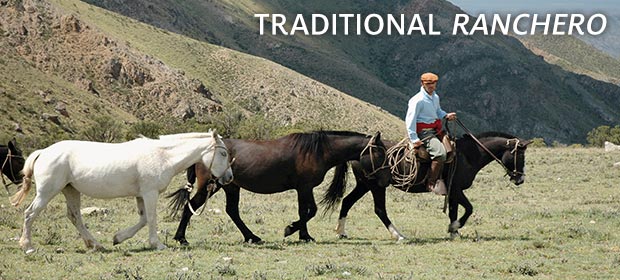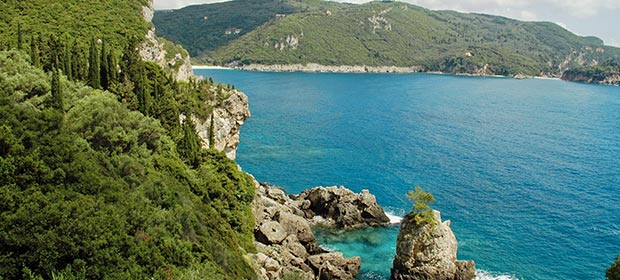Award-winning author Louis de Bernières is well known for his novels, including Captain Corelli’s Mandolin. Editor Laura Daniel talks to him about his love of poetry, the landscapes behind his story telling and his bizarre, yet perfect, travel moment while climbing in the Andes.

Your work is strong on setting and place, describing the landscapes and culture. Do you visit all of the destinations in which your books are set?
Yes, it would be very difficult to do it otherwise because although you can read travel books that help to some extent, there’s nothing quite like feeling the heat yourself or eating the food or smelling the smells. The first time I went to Turkey I noticed that in some parts of the countryside there were empty bottles on some of the roofs of the houses and that means that there is a girl of marriageable age inside. You’d never know that from sitting at home in Norfolk, for example.
How did you come up with the story for Red Dog, set in Australia?
I was asked to go and do a festival in Fremantle near Perth, and part of the deal was that I would do the first ever literary event at a place called Karratha. I did the event and the next morning the hotel manager lent me his Ute and he said to go for a drive. I drove to Dampier, which is very nearby, and I saw a statue on the side of the road of a dog. I stopped to look at this statue and I thought, this is curious. My agent had been hassling me for years to have a go at a children’s book, so I talked to people locally about this dog and they said there are some great stories about him. So a month or two later I came back with a laptop and hired a Ute and drove around collecting the stories. Often, I was writing in the evenings after I’d been out all day, so was able to write the book on the spot.

Do you create a memorable story before you start working on the characters?
There actually isn’t a sensible order to doing it. Every book seems to work out differently. Sometimes you will get a character first who turns up rather like a ghost that won’t go away and other times you get a good story and then you have to invent the characters – and then of course the characters become a nuisance and won’t go away. I generally find that I’m inspired by a story in the first place rather than place or character and then after a while the place definitely does become a character.
You’ve also written novels about South America and spent time there. Is it true you had a stint as a cowboy?
I lived in Colombia for a year. I was out in the middle of nowhere on a ranch. I was actually there as a tutor but I worked on the farm in the afternoons so, yes, I did have three horses and I’m still quite a good shot with a lasso!

You paint the most beautiful picture of Kefalonia, so much so that one of our team was inspired to visit the little village of Sami. How much time did you spend there when you were writing the book and have you been back since?
I’ve been back hundreds of times, for obvious reasons. They even have a Captain Corelli’s bus tour, which will take you to places where I was supposedly inspired. I need to go on that! But initially, actually, I was only there for two weeks and I got the idea for the story because the first thing the tourist board does is apologise for the lack of architecture, which is because of the earthquake in 1953, the whole island fell down.
I was fed up with writing the South America book for several reasons and was looking for something new and thought, ooh an earthquake. I then heard about what had happened in the war and the story just struck me as quite obvious in one fell swoop. So I wrote to the museum curator in Argosoli, which is the capital, and she sent me an enormous reading list which I ploughed through. I also had several major strokes of luck, such as a Greek turning up in the house next to where I was living who had been in the earthquake. All I had to do was go next door and ask him about it.
Your characters range from the ordinary to the eccentric. Do you find yourself taking note of the characteristics of people you meet and do they inspire your characters?
I have occasionally done portraits of people I know, but not very often. It’s actually much better just to tell a big pack of lies. I find that if you get too attached to various realities, including people, then it actually hinders your story telling. There are lots of reasons to not use people you know. If it’s a negative portrait of someone they never realise it’s them, but I don’t have that many negative characters.
Most of them just turn up in my imagination, rather like ghosts. It sometimes feels a bit like being a medium, but I’m not going to get all Californian about it, that’s just what it feels like. They have a strong sense of reality about them. They have a presence and I have a strong picture of them in my mind, which is why it’s actually rather strange seeing the film adaptations because the characters don’t look like the ones I had in my mind when I was writing them.
Are you a disciplined writer and do you sit down daily to write?
I am disciplined at the moment but not usually. Normally I wait for inspiration and if it doesn’t come I just do something else, I’m damned if I’m going to sit in front of a black screen and fret. I’d rather go fishing. When something comes to me I usually work all morning and I find that’s enough, my brain seizes up after a morning and I need to do something else. In my heyday when I was fuelled on coffee and cigarettes I could work for 16 hours. I can’t now.
What tips would you give to aspiring novelists?
First of all find out what you’re good at. A lot of people want to be writers but they have a false idea of what they might be writing. I had a good example once on a creative writing course I was doing; a Hungarian lady wanted to write literary novels but when I read her work it was obvious to me that she ought to be writing erotica.
With such a huge amount of time dedicated to writing a book, there must be a lot of pressure to be published. Do you have those fears?
It is daunting. I had to re-write one of my novels seven times before it was good enough. I have written other things that I have had to abort because I couldn’t put my heart into it or go any further. The criticism from a good editor, although disheartening at the time, in the long run is always helpful.
Where do you escape to on holiday?
At the moment we are just going to the Isle of Wight, we’ve been there four years running. When I was a child we spent our family holidays there and I always loved that we went back to the same places so I thought that’s what I want for my children.
What’s on your travel wishlist?
Well, you can’t improve on the Mediterranean in the spring or autumn. A Greek island in the spring or the Turkish coast in the spring is just wonderful. I feel I’ve missed out on Asia and northern Europe. I would love to go to Iceland and potter around on a horse. I’d love to see more of Asia as well. I have a strong feeling that Asia is the future of the world. It’s going to shift from Europe and America in the long run and you can see it just starting up now. For instance, if you go to a book fair in Britain, you’ll not get that many people coming and few will be under 60. I went to the Hong Kong Book Fair this year and nearly a million people came and they were nearly all under 30.

_w=83_h=42.png?v=50b5090152d3604af392a624277f3b6d653b3449)
_w=161_h=19.png?v=50b5090152d3604af392a624277f3b6d653b3449)



